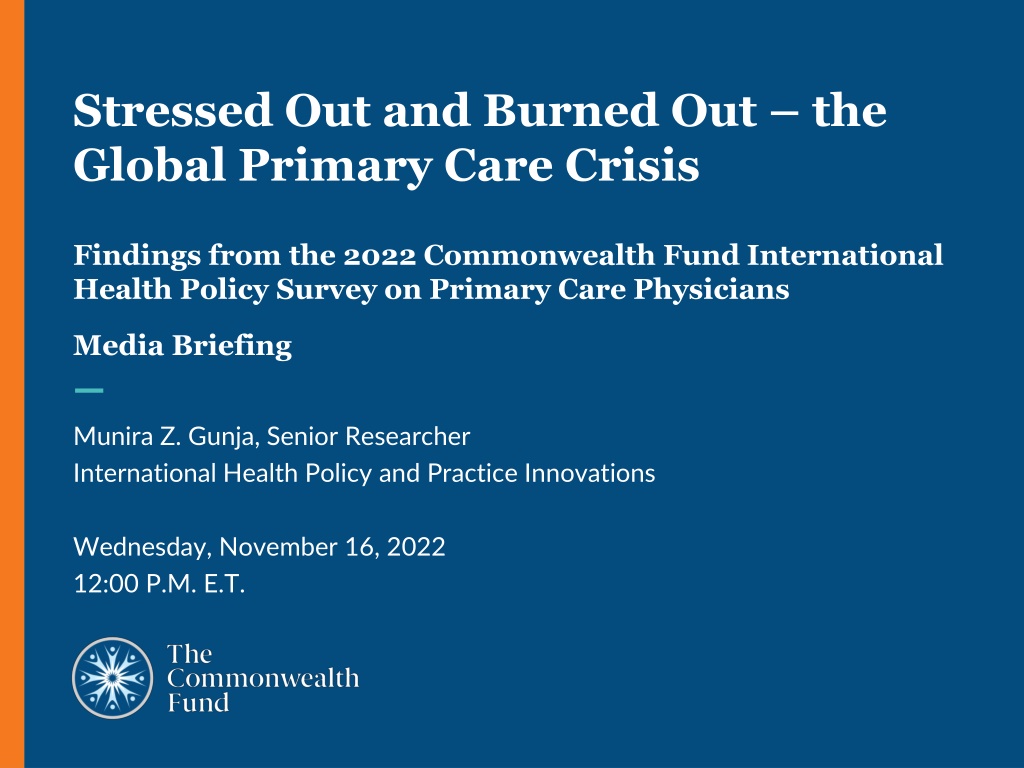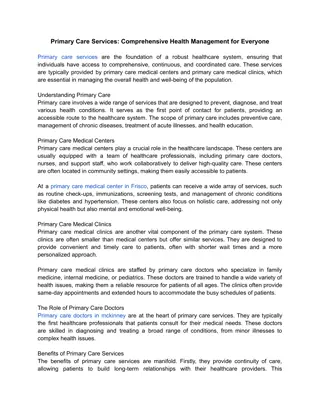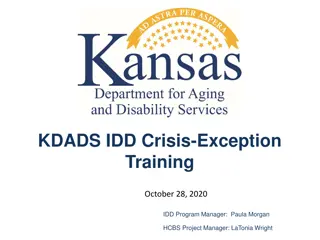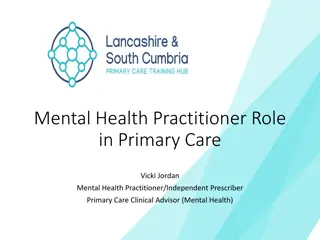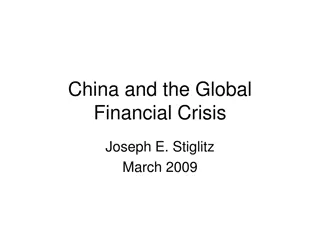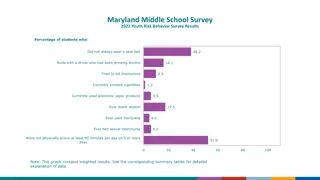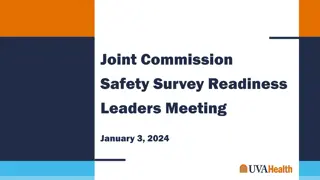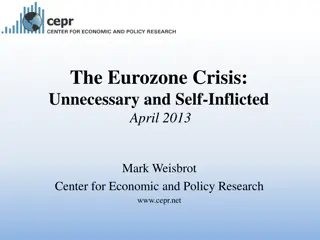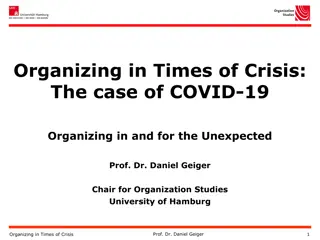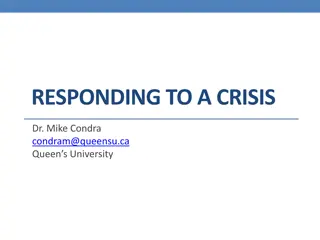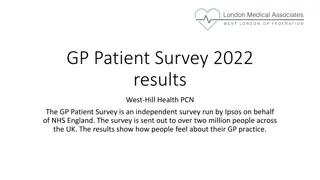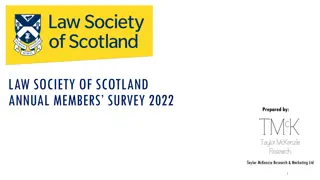Global Primary Care Crisis: 2022 Survey Findings
Findings from the 2022 Commonwealth Fund International Health Policy Survey reveal the significant challenges faced by primary care physicians globally. The survey highlights increased workload, high levels of burnout among younger physicians, reluctance to seek mental health support, decline in quality of care due to stress, and a looming workforce crisis with older physicians considering stopping patient care. The study conducted across 10 high-income countries sheds light on the urgent need for support and sustainable solutions in primary care.
Download Presentation

Please find below an Image/Link to download the presentation.
The content on the website is provided AS IS for your information and personal use only. It may not be sold, licensed, or shared on other websites without obtaining consent from the author. Download presentation by click this link. If you encounter any issues during the download, it is possible that the publisher has removed the file from their server.
E N D
Presentation Transcript
Stressed Out and Burned Out the Global Primary Care Crisis Findings from the 2022 Commonwealth Fund International Health Policy Survey on Primary Care Physicians Media Briefing Munira Z. Gunja, Senior Researcher International Health Policy and Practice Innovations Wednesday, November 16, 2022 12:00 P.M. E.T.
MEDIA BRIEFING Survey highlights Physician workload: Across the 10 high-income countries included in this study, most primary care physicians reported increases in their workload since the beginning of the pandemic. Burnout: Younger primary care physicians were more likely to feel burnout compared to older physicians Mental health: Few primary care physicians with emotional distress, regardless of age, sought medical attention for their mental health needs Quality of care: Primary care physicians who experienced stress, emotional distress, or burnout reported declines in the quality of care they provide. Workforce in crisis: More than half of older primary care physicians in most countries reported they would stop seeing patients within the next three years, leaving a primary care workforce made up of younger, more stressed, and burned-out physicians. 2
MEDIA BRIEFING How we conducted this study The 2022 Commonwealth Fund International Health Policy Survey on Primary Care Physicians was conducted by U.S. survey research firm SSRS and contractors in other countries from February to September 2022. The goal of the survey to understand the working conditions and experiences faced by primary care physicians during the COVID-19 pandemic A total of 9,526 interviews were completed; final country samples ranged from 321 to 2,092. Countries included are Australia, Canada, France, Germany, the Netherlands, New Zealand, Sweden, Switzerland, the U.K, and the U.S. For more details, see How we conducted this study section 3
More than half of primary care physicians in all countries said their workload has increased since the pandemic began. Percentage of primary care physicians who said their workload increased somewhat or increased a lot compared to before COVID-19 93 91 85 80 76 76 72 65 64 56 SWIZ* SWE US FRA* AUS* CAN* NETH* NZ* UK* GER* * Statistically significant differences compared to US or comparator bar at p<.05 level. Data: Commonwealth Fund International Health Policy Survey of Primary Care Physicians (2022). 4 Source: Munira Gunja et al., Stressed Out and Burned Out: The Global Primary Care Crisis Findings from the 2022 International Health Policy Survey of Primary Care Physicians (Commonwealth Fund, Nov. 2022). https://doi.org/10.26099/j2ag-mx88
Younger primary care physicians were generally more likely to report burnout than older physicians; physicians in the Netherlands and Switzerland were least likely to report burnout. Percentage of primary care physicians who said they were burned out^ Under age 55 Age 55 and older 57 53 50 45 44 40 39 39 39 36 31 30 30 29 29 26 21 15 13 11 NETH SWIZ* FRA SWE* GER* AUS* UK* US* CAN* NZ* ^ The survey asked physicians if they agreed with the following statements: 1) I am definitely burning out and have one or more symptoms of burnout, such as physical and emotional exhaustion ; 2) The symptoms of burnout that I m experiencing won t go away. I think about frustration at work a lot ; 3) I feel completely burned out and often wonder if I can go on. I am at the point where I may need some changes or may need to seek some sort of help. * Statistically significant difference to bar in comparison for within-country stratification analyses at p<.05 level. Data: Commonwealth Fund International Health Policy Survey of Primary Care Physicians (2022). 5 Source: Munira Gunja et al., Stressed Out and Burned Out: The Global Primary Care Crisis Findings from the 2022 International Health Policy Survey of Primary Care Physicians (Commonwealth Fund, Nov. 2022). https://doi.org/10.26099/j2ag-mx88
Younger primary care physicians with emotional distress were more likely to seek professional help for mental health needs in nearly all countries, but most physicians, regardless of age, did not seek help. Percentage of primary care physicians with emotional distress who said they sought professional attention for a mental health problem since the COVID-19 pandemic began Under age 55 Age 55 and older 23 20 18 17 16 16 13 11 10 10 9 9 8 8 8 7 6 6 6 4 GER SWIZ* NETH SWE* FRA* US* AUS* UK* CAN* NZ* * Statistically significant difference to bar in comparison for within-country stratification analyses at p<.05 level. Data: Commonwealth Fund International Health Policy Survey of Primary Care Physicians (2022). 6 Source: Munira Gunja et al., Stressed Out and Burned Out: The Global Primary Care Crisis Findings from the 2022 International Health Policy Survey of Primary Care Physicians (Commonwealth Fund, Nov. 2022). https://doi.org/10.26099/j2ag-mx88
Primary care physicians experiencing stress, emotional distress, or burnout were more likely to report the quality of care they provided declined during the pandemic. Percentage of primary care physicians who said quality of medical care they were able to provide worsened somewhat or a lot compared to before the COVID-19 pandemic began No stress, emotional distress, or burnout Had stress, emotional distress, or burnout 55 52 44 40 39 39 32 29 28 27 24 24 22 16 12 10 8 6 SWIZ* US* AUS* NETH* CAN* FRA* GER* SWE* UK* Note: Because of sample-size limitations, results for New Zealand are not shown. * Statistically significant difference to bar in comparison for within-country stratification analyses at p<.05 level. Data: Commonwealth Fund International Health Policy Survey of Primary Care Physicians (2022). 7 Source: Munira Gunja et al., Stressed Out and Burned Out: The Global Primary Care Crisis Findings from the 2022 International Health Policy Survey of Primary Care Physicians (Commonwealth Fund, Nov. 2022). https://doi.org/10.26099/j2ag-mx88
Nearly half of older primary care physicians in most countries say they intend to stop seeing patients in the near future. Percentage of primary care physicians who said they plan to stop seeing patients in the next one to three years^ Under age 55 Age 55 and older 67 59 55 52 48 47 45 40 37 31 20 18 16 14 11 11 8 7 5 4 NETH* SWIZ* GER* AUS* CAN* SWE* US* FRA* NZ* UK* ^ Reasons to stop seeing patients include changing careers, retiring jobs, etc. * Statistically significant difference to bar in comparison for within-country stratification analyses at p<.05 level. Data: Commonwealth Fund International Health Policy Survey of Primary Care Physicians (2022). 8 Source: Munira Gunja et al., Stressed Out and Burned Out: The Global Primary Care Crisis Findings from the 2022 International Health Policy Survey of Primary Care Physicians (Commonwealth Fund, Nov. 2022). https://doi.org/10.26099/j2ag-mx88
MEDIA BRIEFING Survey highlights Physician workload: Across the 10 high-income countries included in this study, most primary care physicians reported increases in their workload since the beginning of the pandemic. Burnout: Younger primary care physicians were more likely to feel burnout compared to older physicians Mental health: Few primary care physicians with emotional distress, regardless of age, sought medical attention for their mental health needs Quality of care: Primary care physicians who experienced stress, emotional distress, or burnout reported declines in the quality of care they provide. Workforce in crisis: More than half of older primary care physicians in most countries reported they would stop seeing patients within the next three years, leaving a primary care workforce made up of younger, more stressed, and burned-out physicians. 9
MEDIA BRIEFING Takeaways Health systems across the world are facing a primary care crisis with declining quality of care and physically and mentally overburdened physicians, particularly among younger physicians. Other countries have made their own investment commitments to ensure their country s health system is equipped with an adequate supply of primary care physicians who can provide high-quality care. Government investment can go a long way: o Ensuring all PCPs have access to mental health services is critical o Increasing Medicare and Medicaid reimbursement for primary care services, as well as loan forgiveness programs, can draw more students into the field. 10
